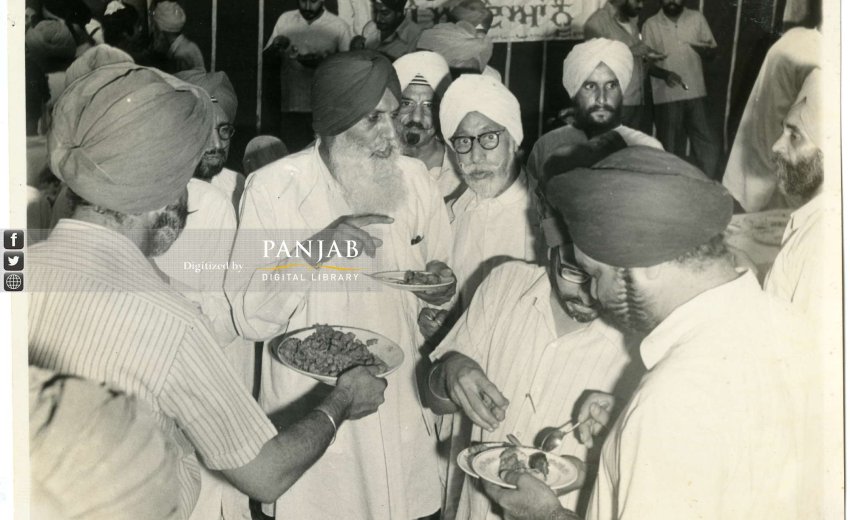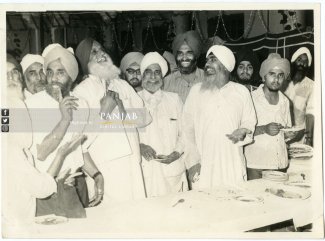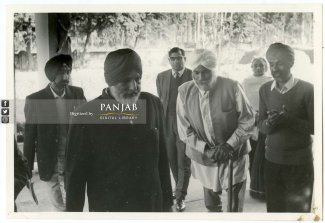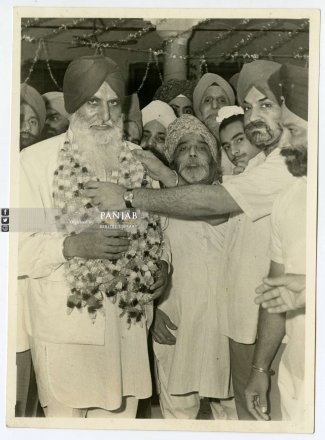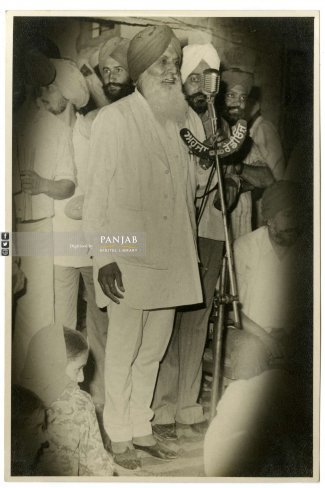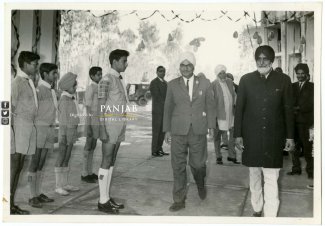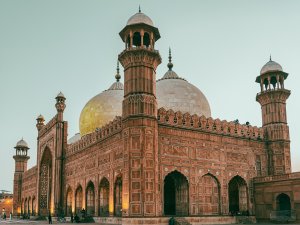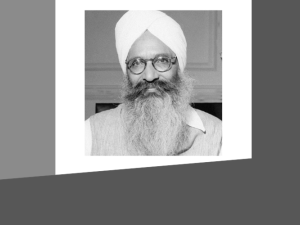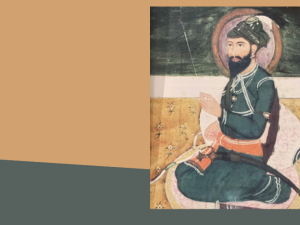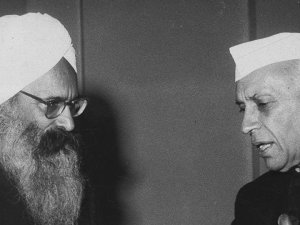I remember that in the first Amrit parchar held in Espanola, USA in 1972. S. Gurcharan Singh Tohra the then President of SGPC was one of the five chosen people who performed the most sacred religious ceremony. Others were also very important Sikh leaders like S. Hukam Singh former Speaker of Indian Parliament, S. Surjit Singh Barnala, former Chief Minister Punjab, Giani Mohinder Singh, then Secretary SGPC and the fifth was a priest from Golden Temple Amritsar. There was enthusiasm among the young American men and women to embrace Sikhism and this became one of the most publicized event n USA. Yogi Bhajan before coming to America was posted as Govt. of India officer in Amritsar and it was during that time he became a close friend of Tohra and this friendship was ever lasting. SGPC is the highest elected organization of the Sikhs which was formed by an Act of the Govt. in 1925. It manages all historic Sikh shrines in Punjab. Tohra had the distinction of becoming President of SGPC for 27 years and was one of the most influential Sikh leadersof the 20th century. Indian President A.P.J. Abdul Kalam described him as a “prominent political and social leader who was well known for his work during his many years in public life”.
He was born on 24th September 1924 in village Tohra (Patiala district). While attending the karsewa of the Golden Temple Sarovar he fell down and passed away on 1st April 2004. One can imagine his importance that during his life time he was considered as Pope of the Sikhs. After his death Akal Takhat Jathedar conferred on him, the highest religious title, Panth Rattan (pearl of the panth).
He had an early interest in religion and was also an active Akali party worker. He became General Secretary of the Patiala District Akali Dal. He did not have any formal education but passed Giani which is a Graduate Degree in Punjabi language and religion from Punjab University. He had good contacts with Harkrishan Singh Surjit, communist leader and became a hard liner. He carved out for himself the image of a non-conformist with the powers that be in Akali politics and had taken frontline SAD leaders Parkash Singh Badal and Surjit Singh Barnala who had headed Akali Dal governments in Punjab in the eighties and nineties. He was known for his own brand of politics.
He played an important role in Sikh political affairs in post partition India. Along with Parkash Singh Badal and Jagdev Singh Talwandi, he was regarded as the triumvirate of Sikh politics. Unlike the other two, his main domain was the Sikh religious institution, the SGPC. Though he dabbled with electoral politics often, Tohra made his mark in Sikh religious affairs. He never joined as Minister in any cabinet and confined his activities in religious and public affairs. Though he remained Member of Indian Parliament for many years.
Tohra was first jailed in 1945 in a freedom movement and again in 1950 against the formation of PEPSU government. In 1955 and 1960 he was put behind bars in connection with Punjabi Suba agitations, in 1973 in connection with Kisan agitation in Haryana, in 1975, against emergency in India and was again detained after Operation Blue Star in 1984. Tohra and Sant Harchand Singh Longowal at the risk of their lives remained in SGPC guest house during Army attack in 1984.
After Operation Blue Star in 1984, Tohra became an embittered man and did not endorse the Punjab accord signed by the Rajiv Gandhi government with Harchand Singh Longowal for sharing political power. He took another controversial step some time later by deciding to demolish the Akal Takht which was rebuilt after Operation Blue Star by pro-government religious leaders. The Takht was rebuilt by SGPC. This turned him into the ‘bête noire’ not only of the Centre but also of the then Surjit Singh Barnala, Akali government in Punjab.
He was detained under the National Security Act but continued to be elected SGPC Chairman for several years in absentia. Throughout this bleak period, Tohra was supported by Badal but in 1999, the two leaders, considered the best of friends, fell out after the SGPC chief pressed for Badal’s removal as SAD chief. Tohra supporters Ministers in government resigned and formed a new Akali Dal. In 1999 parallel functions were organized by both factions in Anandpur Sahib to celebrate three hundredth birth of Khalsa. Yogi Bhajan who brought three hundred American Sikhs participated in both functions.
The Tohra Badal feud paved the way for the victory of Congress in The Punjab Assembly elections and Capt. Amrinder Singh became the Chief Minister. Considering the Panthic interest I organized meetings of Tohra and Badal and on 13 June 2003 both buried the hatchet and merged both Akali units. Tohra became again the President of SGPC. With this move the Akali party again won Punjab Assembly elections and Badal became the Chief Minister.
It is to Tohra’s credit that Baba Banda Bahadur Engineering College was started in Fatehgarh Sahib and Guru Ram Das Medical College at Amritsar. On request of Yogi Bhajan he gave 20 acres of land to build an impressive Miri Piri Academy at Cherrata, Amritsar which provides education to American Sikh students.
After his demise the Sikh community gave him unprecedented tribute at the Bhog ceremony in village Tohra on 11th April 2004. In my article in daily Ajit I wrote that no Sikh leaders could ever get such honor. Leaders from all walks of life were there including Capt. Amrinder Singh, Chief Minister and Badal. The kirtan recited by young American Sikh students created an unforgettable atmosphere. Atal Bihari Vajpayee, Prime Minister in a condolence letter wrote “Tohra was a leader with deep saintly traits, “a follower of dictum of simple living and high thinking. In his death the country has lost a popular inspiring figure” Veteran journalist Khushwant Singh stated that Tohra was "uncrowned King of the Sikhs".
SikhNet is honored that Sardar Tarlochan Singh ji, EX-MP, Former Chairman National Commission Minorities, India is sharing his personal recollection of historical events with our audience.
The opinions expressed here are personal to the author and do not necessarily reflect an editorial position of the SikhNet staff or board.
